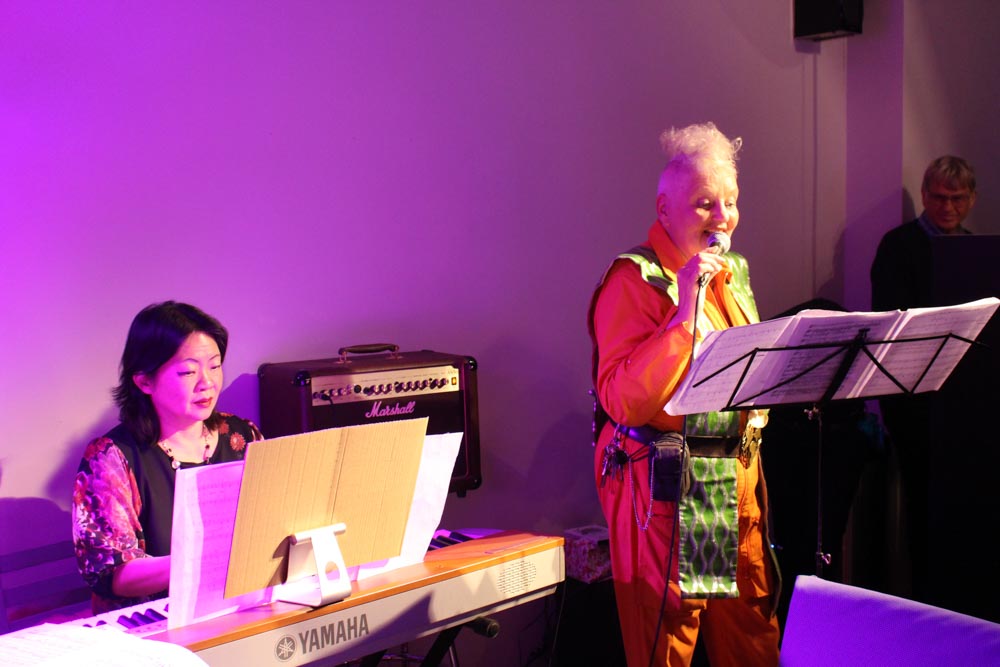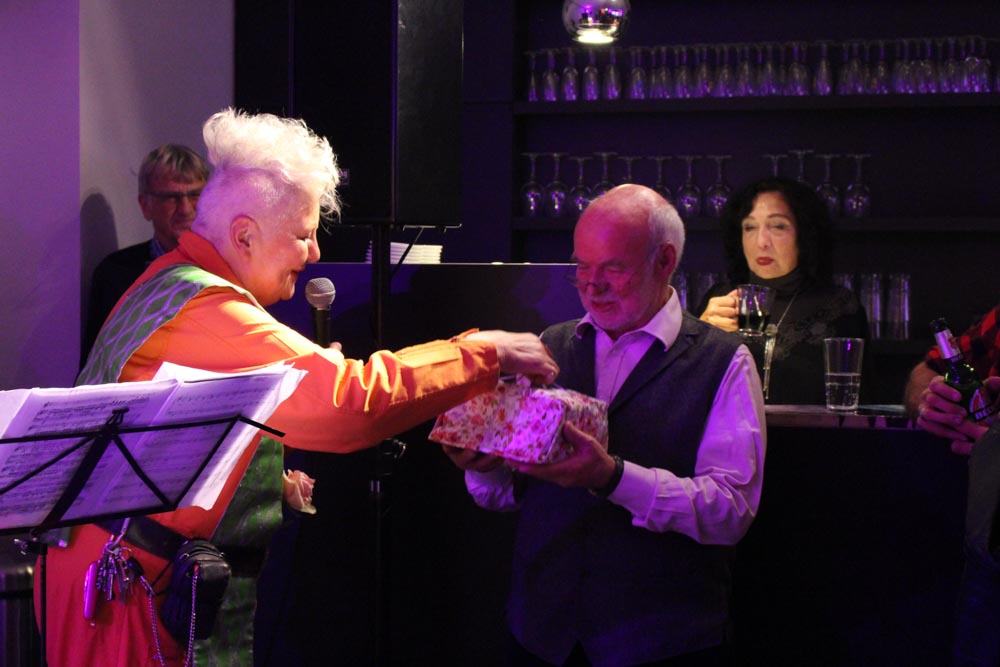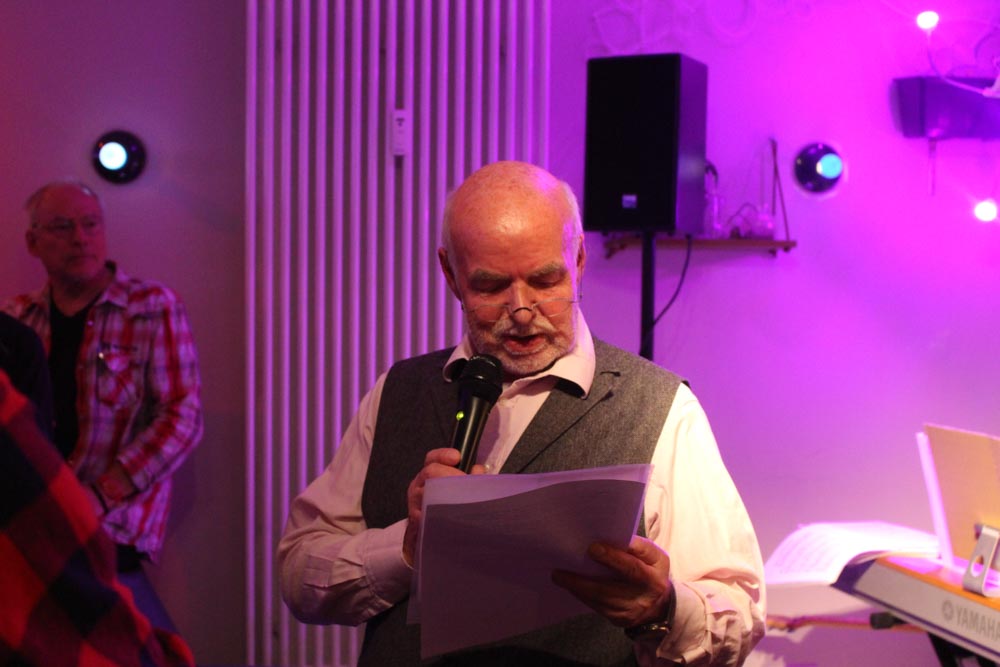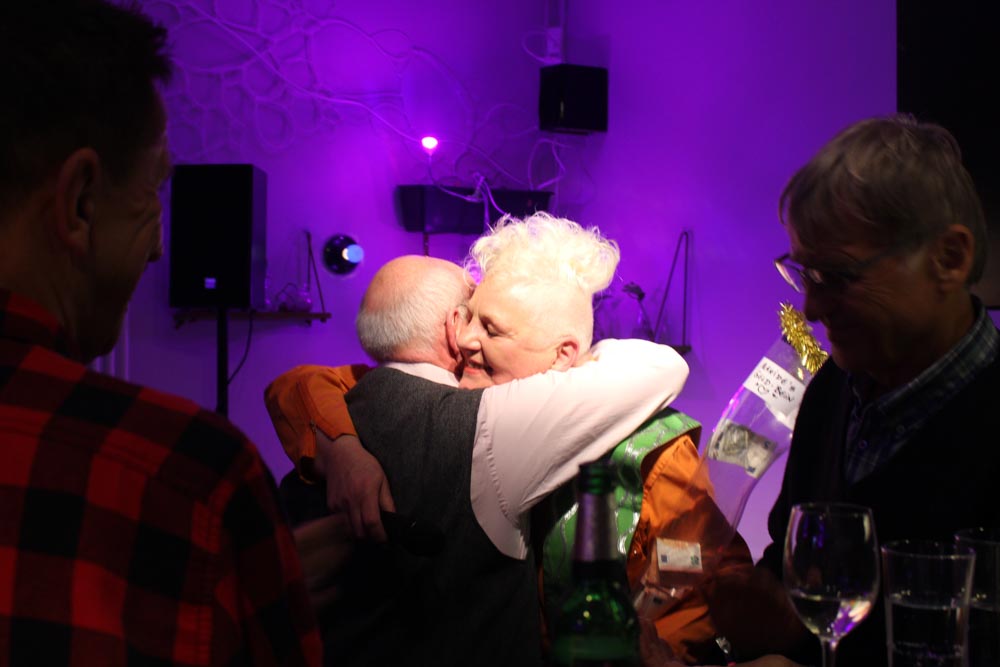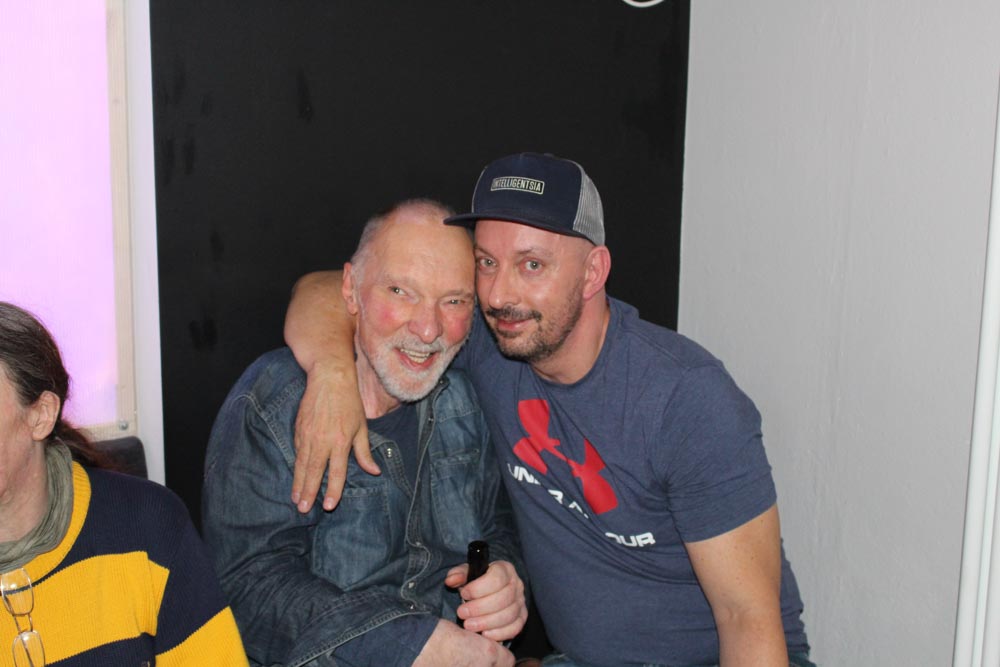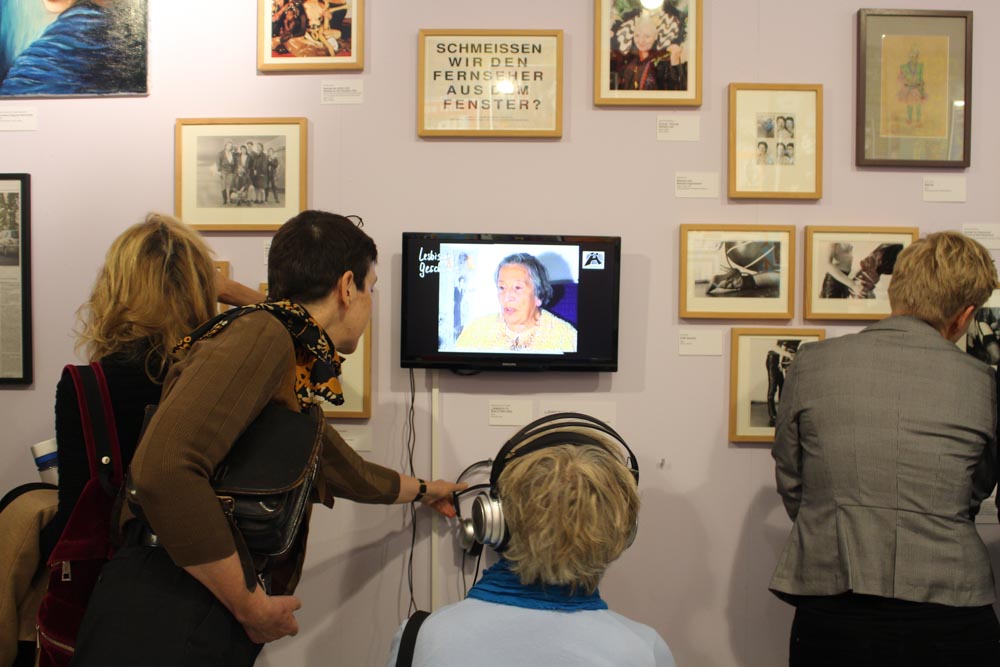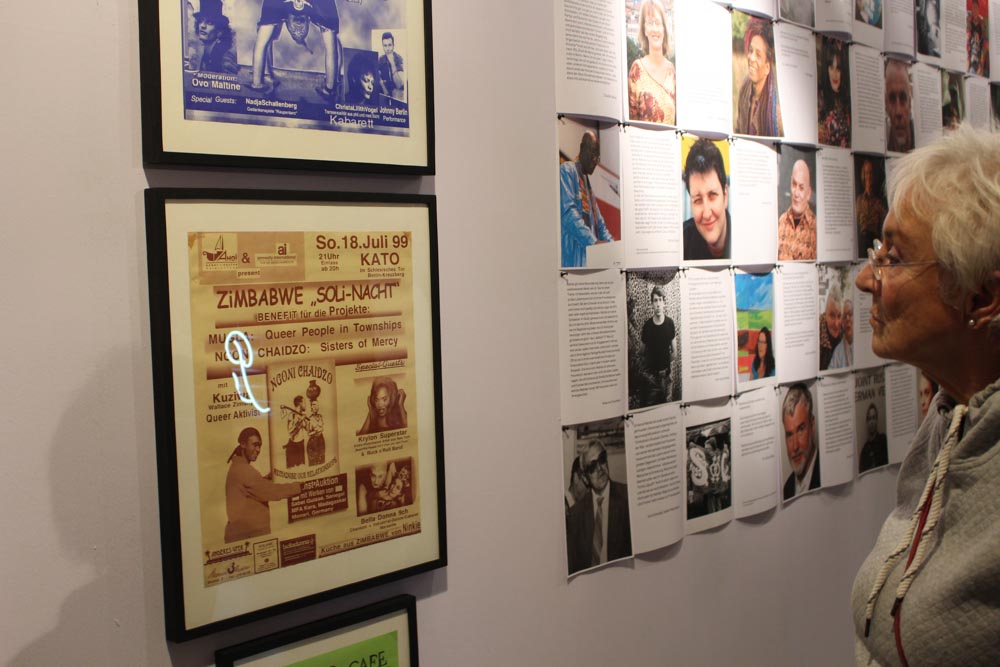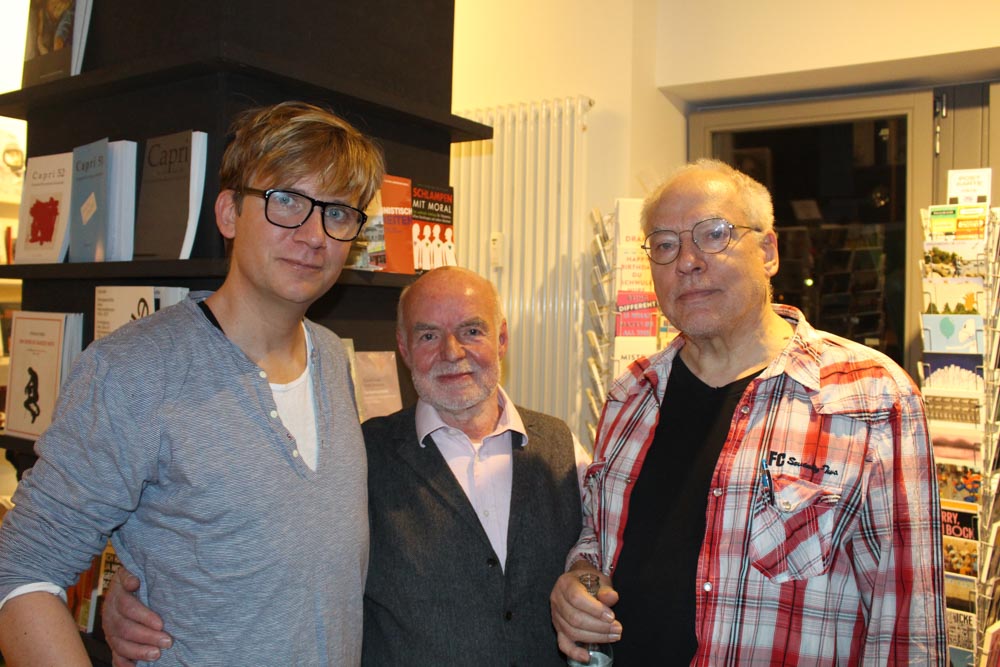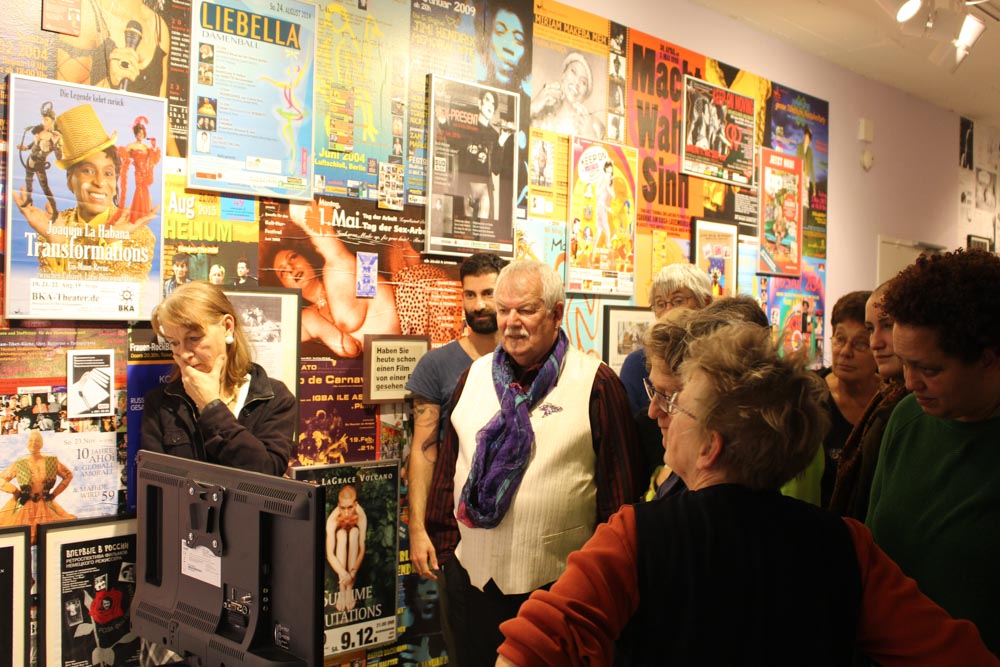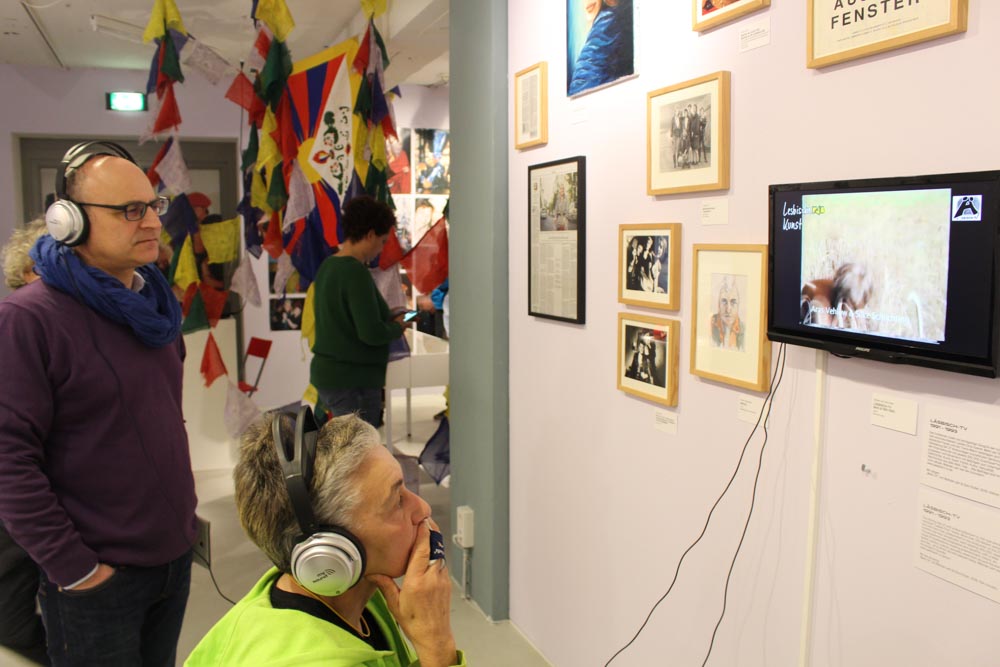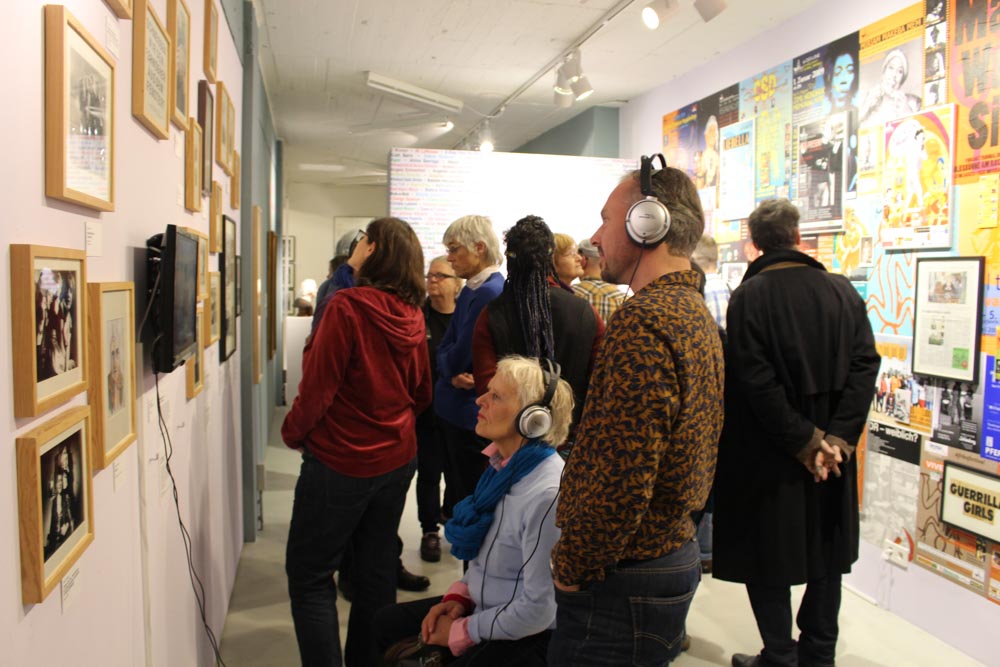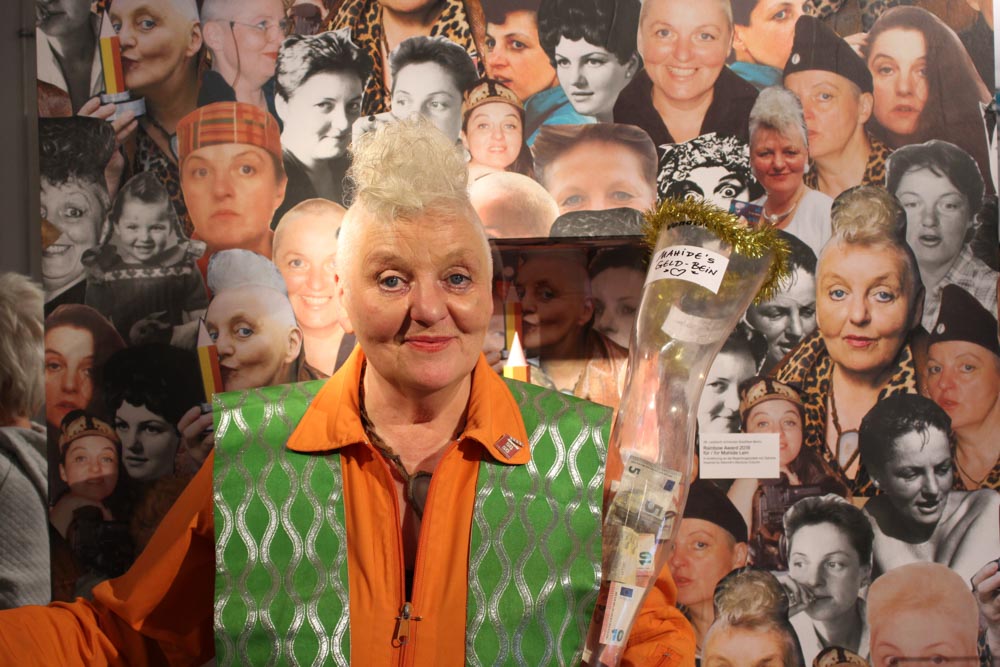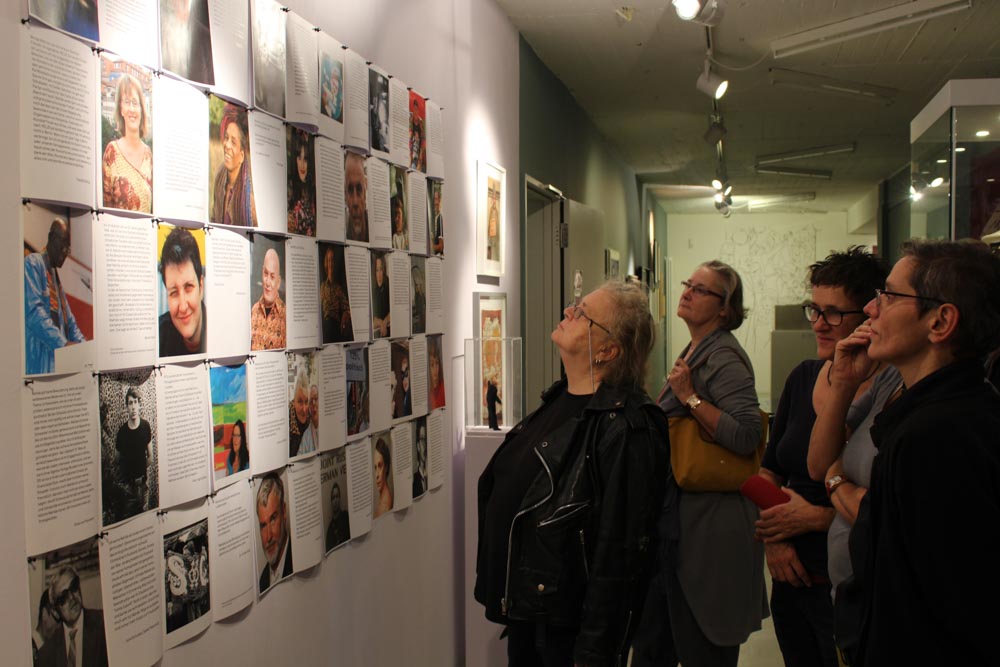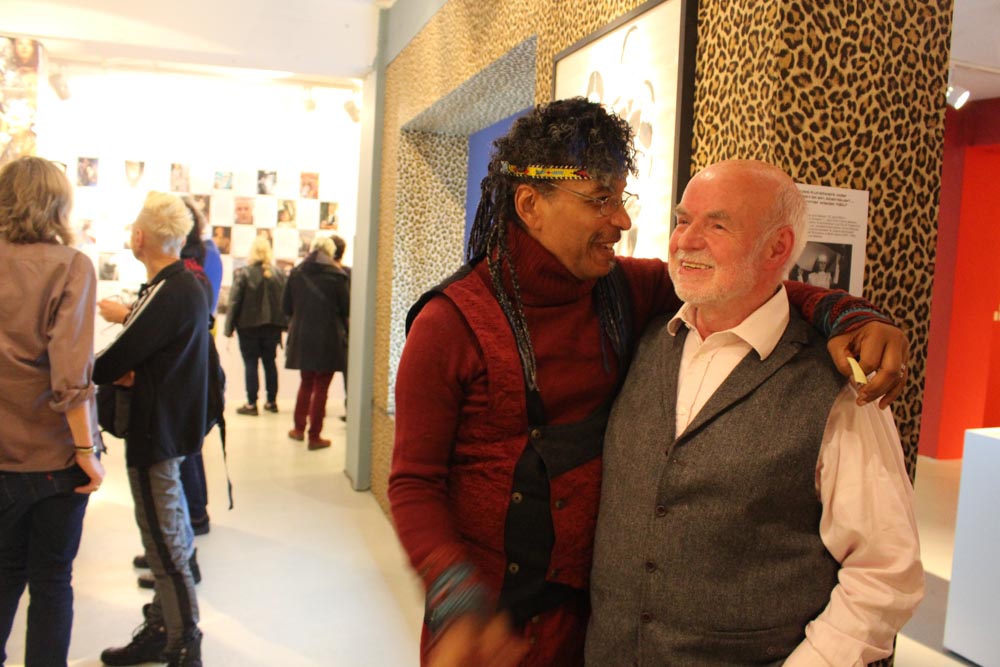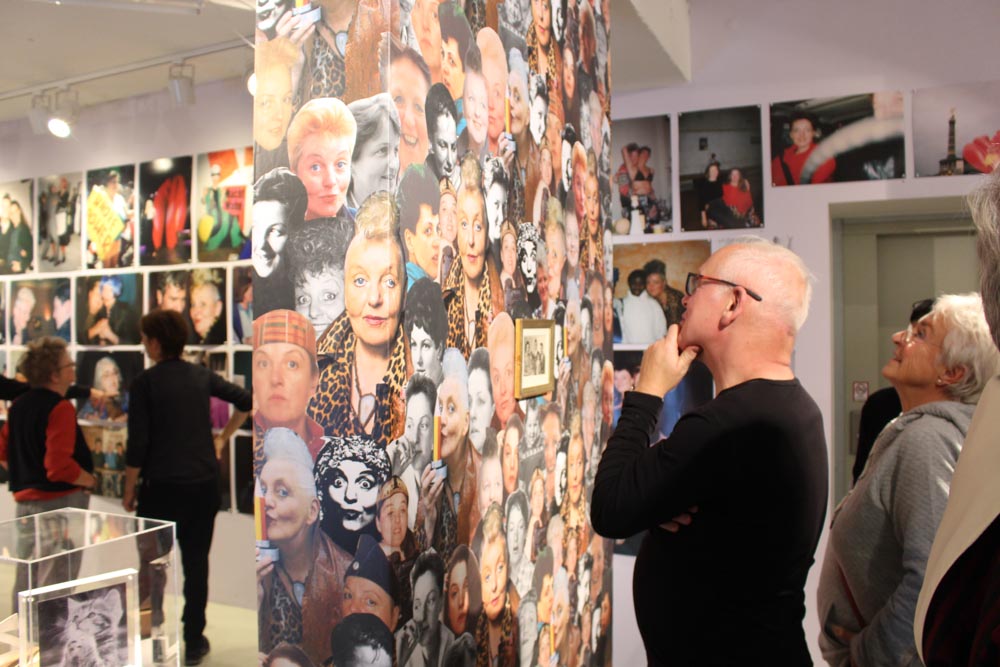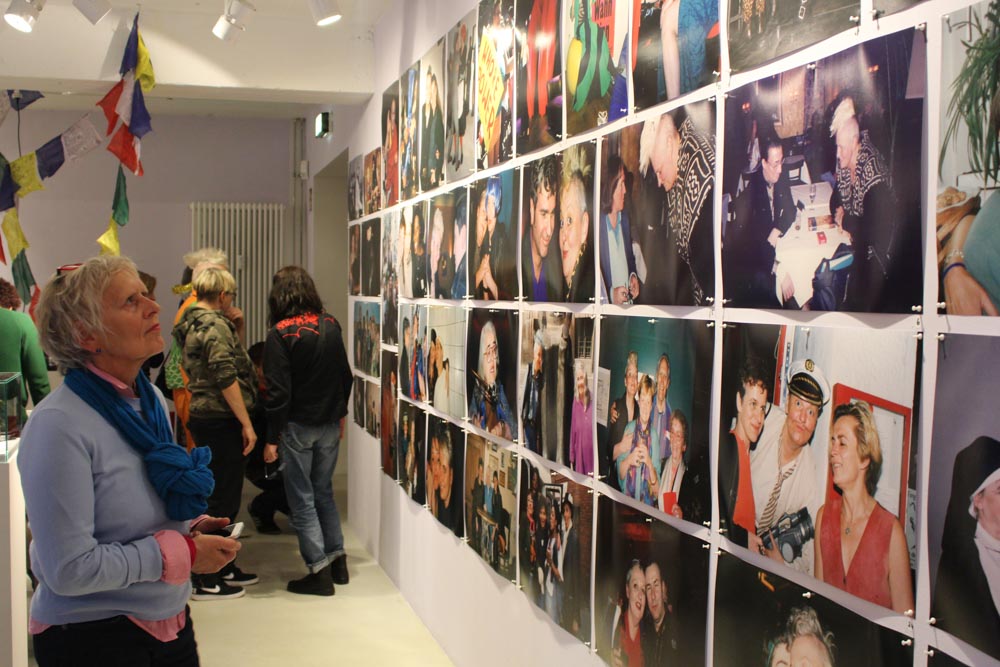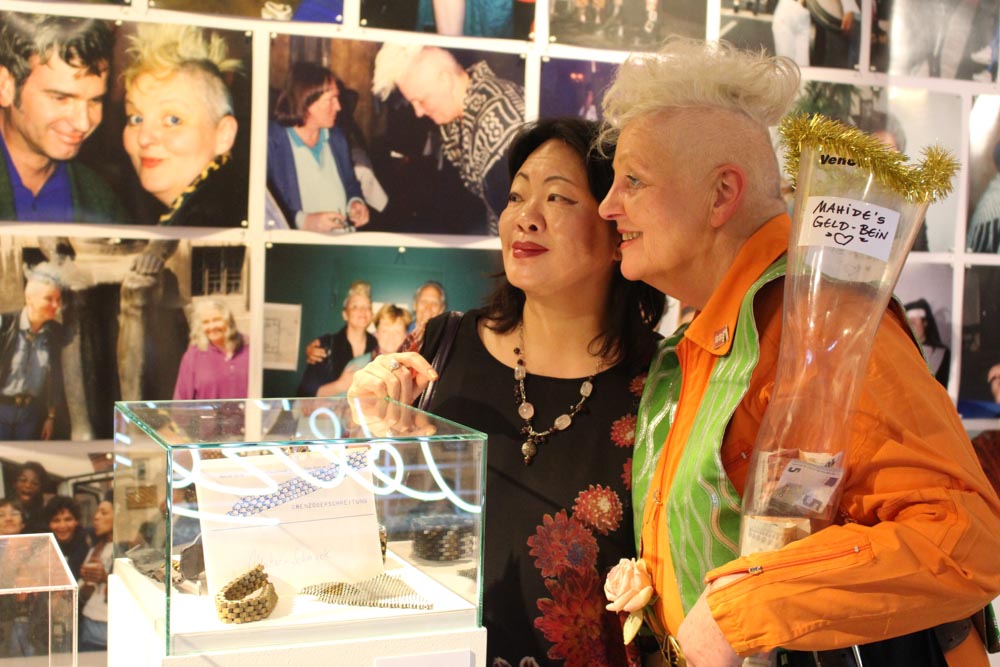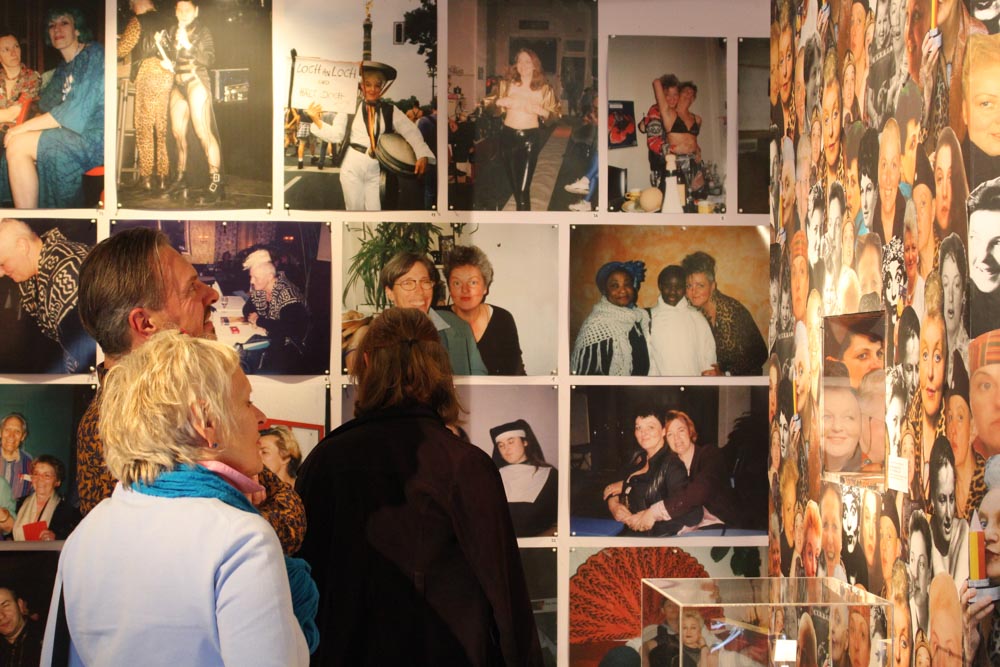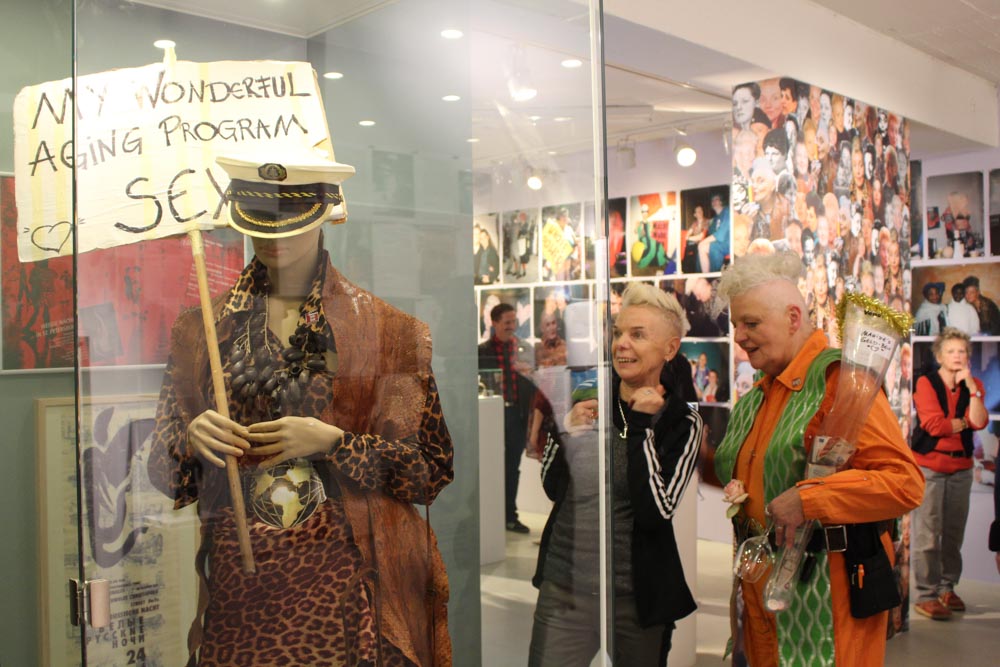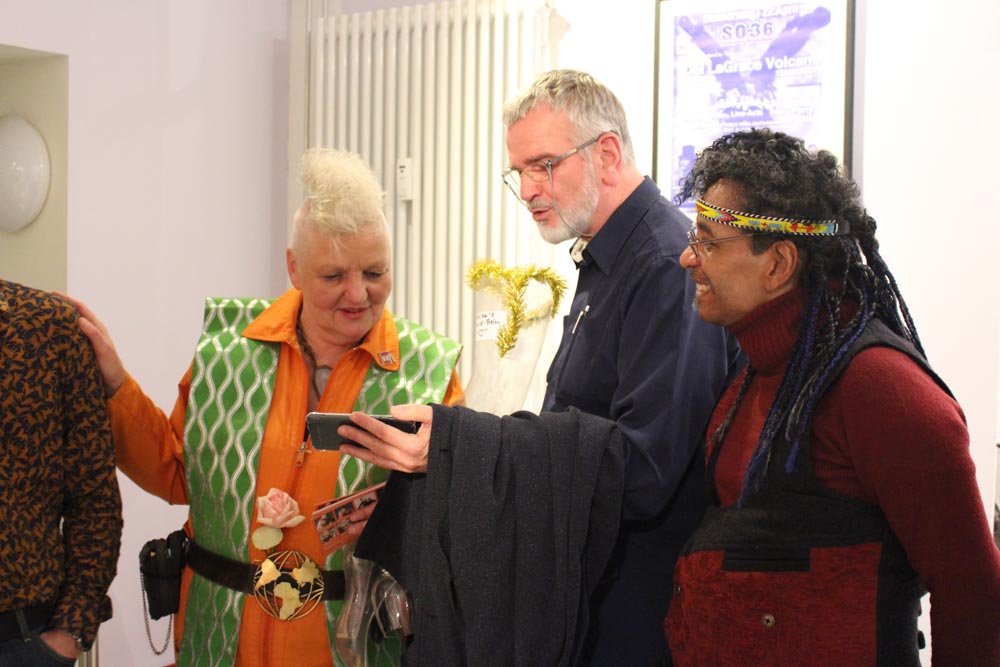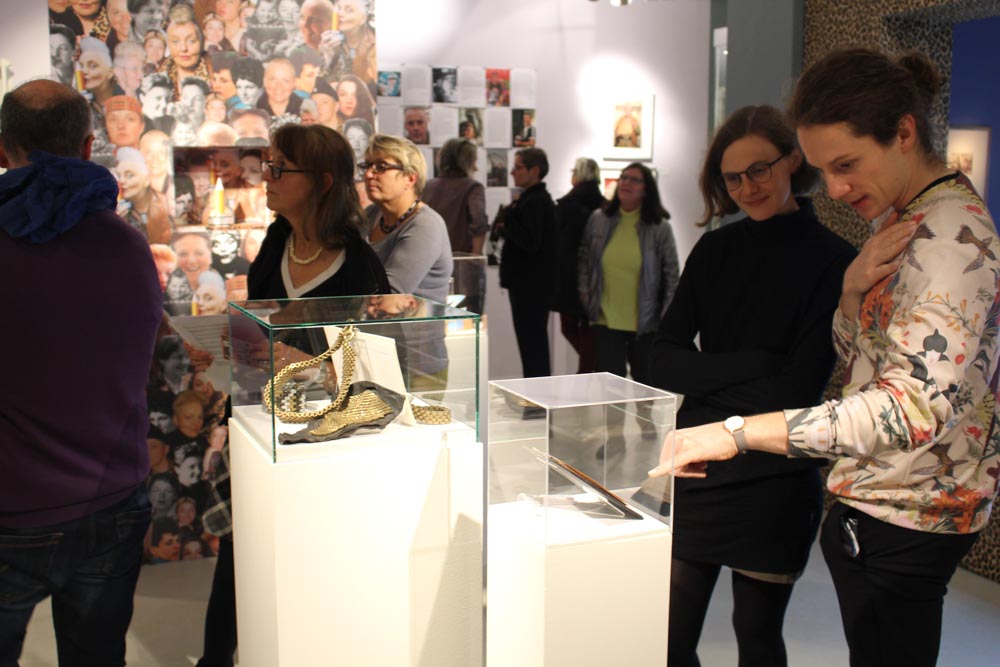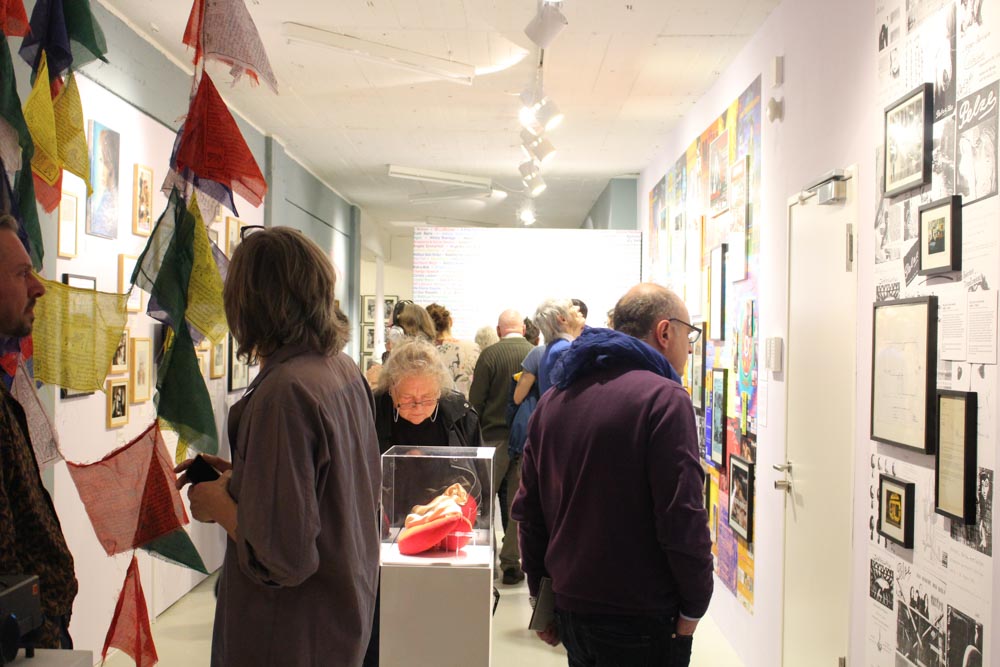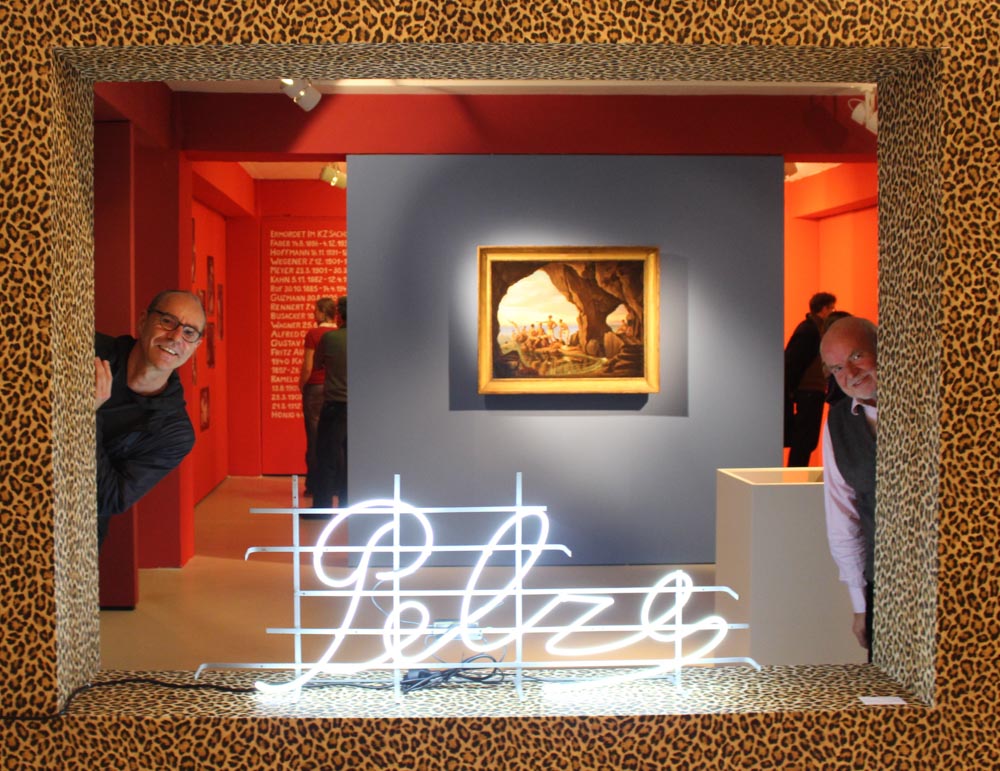SEX IM ALTER: Homage for Mahide Lein’s 69th Birthday (115)
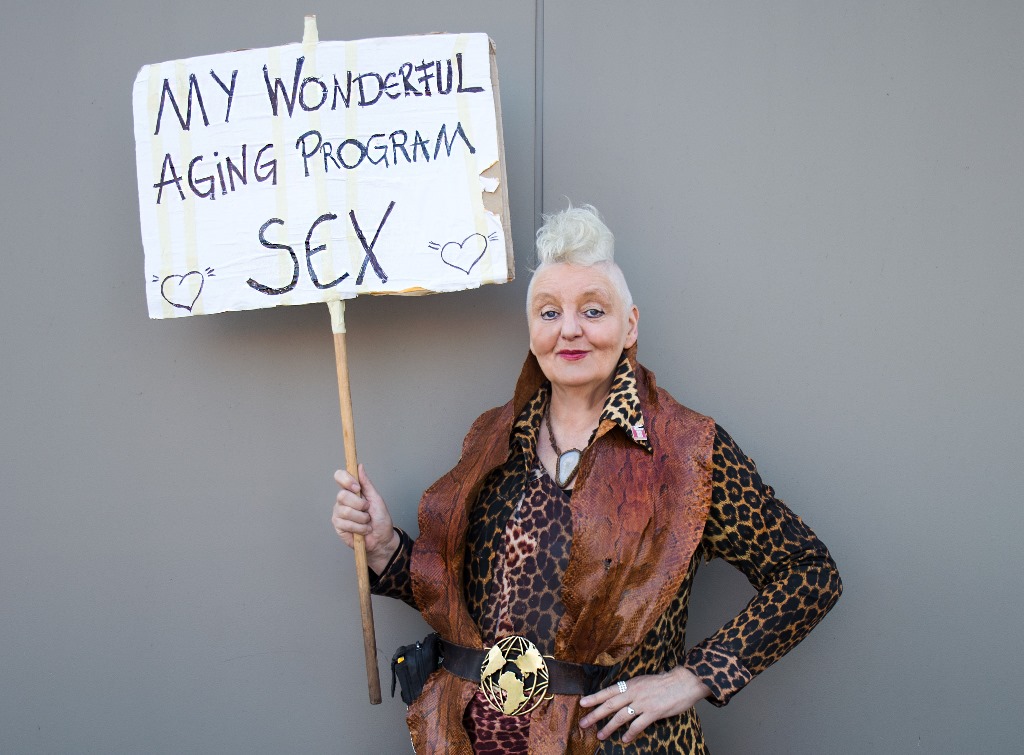
As part of our Year of the Women* program the Schwules Museum presents an homage in the form of a special exhibition on activist Mahide Lein. The exhibition will be a part of our exhibition A Change of Scenery which provides historical perspectives on gay/lesbian liberation movements starting from the middle ages until today.
Curator Wolfgang Theis:
“Warmth, understanding, curiosity, anarchy, affection – that is Mahide Lein. She is a wonderful example of queer longings, aspirations, and demands. A long time ago, I rode with Mahide for a long stretch on the U-bahn. My relation to her at the time was distant but Mahide spoke melancholically. Then suddenly it came to me; Mahide needed to be cared for sometimes. The idea that came to me was to appreciate the institution that Mahide Lein was in the world. So finally comes an homage to the incredible queen of lesbian subculture in order to close the Year of the Women at the Schwules Museum.
Mahide was always there: at the women’s meetings in Café Niedenau in 1970, held in a squat on Kettenhofweg in Frankfurt am Main, and at the founding of the first lesbian center (lesbenzentrum) in Frankfurt. Later, love brought her to Berlin, again to live in a squat, where she was involved in the women’s meeting at Kaffee Winterfeldt. From 1983 – 86 Mahide worked in cultural fields with the Berlin Lesbian Weeks and the Women’s Summer Universities, and organised exhibitions and film series with bars and cafes. Here in these circles there was a space (Ladies Only) for a legend in the new women’s movement. Exhibitions, readings, discussions, films, and performances built the framework for legendary parties. Here boundaries were crossed, everything was allowed and a wild time ensued. There were some intense situations, but never bans. But a non-coercive space which provoked excess brought things to a breaking point. The scene needed an image of a leader. Mahide was just that, and the leaders were supported. But the community was only conditionally thankful.
Mahide was on the jury for the queer film prize TEDDY, part of the Berlinale section Panorama, and stayed there for almost two decades. In 1991 Mahide founded the first lesbian TV magazine in the world: LÄSBISCH-TV and produced, together with 100 other women, 27 one-hour episodes for the cable network Fernsehen aus Berlin (TV from Berlin). Together with Andreas Strohfeldt, the Women’s Center, and the Tschaikowsky-Foundation St. Petersburg, she organised the first Russian Christopher St. Day in May of 1992. In 1994 she helped organize the first Gay Lesbian Film Festival and celebrated the 1995 festival with a retrospective film screening by Rosa von Praunheim and Elfi Mikesch in St. Petersburg and Moscow.
In 1995 Mahide Lein started her artist agency AHOI, which operates internationally. Initially she oversaw African women’s bands but soon after, looking for new challenges, she sat down for African artists. The first trip to Africa took her to Zimbabwe. Together with Sue Pakeipei Maluwa-Bruce, Mahide created the video Send me a Postcard sometimes about the situation of lesbians, gays and the like in Africa. This journey changed Mahide’s life: henceforth she’s always felt connected in love to the people of the world. Mahide knows no fear of contact: she’s fought for the rights of sex workers and people living with mental illness and fought resolutely against female genital mutilation. She has brought African homosexual activists to Berlin, promoted the culture of Tibet, and has traveled the world with an international array of artists. In addition to all of this she leads her salon, organizes cultural programs and mostly financially disastrous concerts. Undeterred, she whirls through Berlin’s cultural scenes – rarely an event goes by without Mahide’s artists. There are films by, with and about Mahide. Now finally comes an exhibition on the person of our affection. Let us celebrate Mahide, let her be celebrated, and pay tribute to her maternal omnipotence, let us be beguiled by the erotic artist and the political feminist, who even likes gays.
Let’s celebrate Mahide, let her be celebrated, and let’s pay tribute to her maternal strength.”
Among the many objects and art works shown in the exhibition is the neon-light sign “Pelze” (2018) by Lena Rosa Händle.
There will be an accompanying program of events for the exhibition including readings, discussions, film presentations, and special tours by some of Mahide’s closest companions.

